When creating a character in a tabletop RPG like Dungeons & Dragons, it's essential to know what role that character will play in the party. Part of that is to do with class choice, and tying into that is what exactly a character does — and doesn't do — skillfully.
RELATED: Dungeons & Dragons: Deadliest High-Level Monsters, Ranked
That's where ability scores come in. These stats govern almost everything in the game, from combat to magic to everyday interactions with the party and NPCs. Most players know that every class has one or two main stats they rely on more than others; for example, Barbarians have high strength, Bards have high Charisma. However, every character will find themselves relying on every ability at one point or another — for better or worse. With that in mind, here's everything players should know about the six main stats, or ability scores, in Dungeons & Dragons.
Charisma
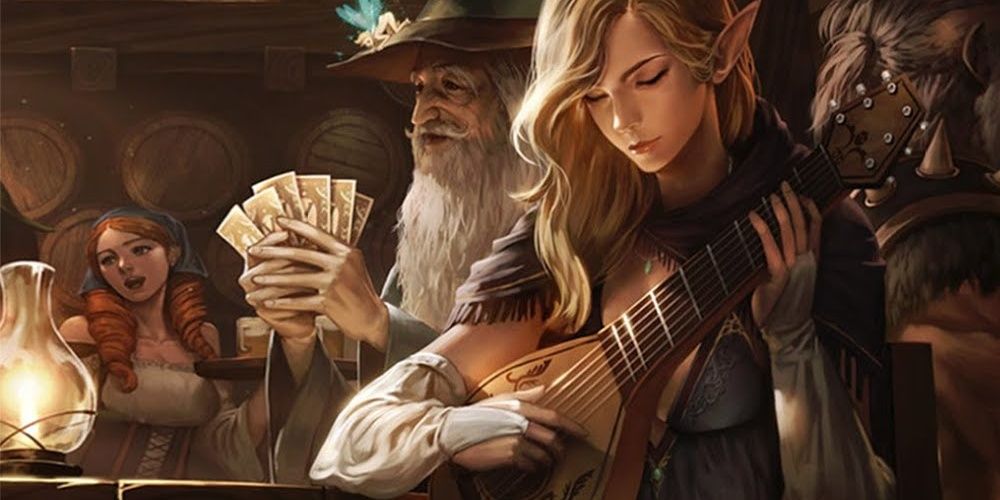
Most often, D&D players associate this stat with how deftly a character can talk their way out of trouble or into an NPC's bed. However, there's a lot more to it than that. Charisma does govern one's smooth talking abilities, but it also describes a character's magnetism, artistic flair, and general likability.
Racial Bonuses
- Tieflings: All gain +2.
- Dragonborn: All gain +1.
- Halflings: The Lightfoot subrace gains +1.
Magic
Every casting class in D&D has an ability score that governs their spell attack rolls and spell save DC. The specific ability that governs one's magical prowess depends on the source of their arcane abilities, as discussed below. Charisma serves as the primary ability for the following classes, who use it for spellcasting:
- Bard: Artistically inclined folk who thrive as the center of attention, Bards use their charisma to influence others through their art — and to cast fantastical spells.
- Sorcerer: Unlike those who must study to obtain magical skill, Sorcerers have innate magical power, and their ability to cast their spells relies on their ability to access that special something.
- Paladin: These holy warriors often must rally others to their cause, and thus rely on their gravitas and magnetism.
- Warlock: As their magic comes from a bargain with an unpredictable, powerful being, Warlocks need tactful negotiating skills in order to gain and keep their power.
RELATED: Best Third-Party Books For D&D 5e, Ranked
Skill Checks
When making a check for any of the following skills, players must add their Charisma modifier to their d20 roll. Depending on the overall ability score, that modifier may be positive or negative, either increasing or decreasing the overall outcome. Charisma-governed skills typically involve interactions with other characters.
- Deception governs a character's ability to lie convincingly. Those with high Charisma have an easier time selling their stories.
- Intimidation checks determine how well a character can frighten or menace an NPC. With a decent roll and high Charisma modifier, even a Gnome could frighten an Orc.
- Performance checks often involve music, stage performace, or other Bardic persuasions. Higher Charisma means greater ability to captivate an audience.
- Persuasion is fairly self-explanatory; high-Charisma characters have an easier time swaying others with their words.
Constitution
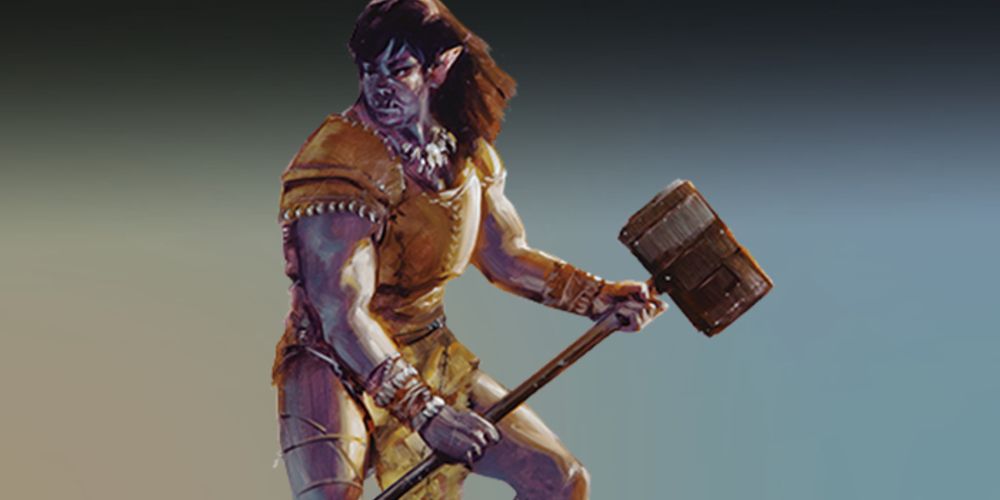
This stat's primary function is to determine a character's maximum HP. However, it may also be used as a saving throw against certain types of damage. Constitution can be used to determine whether a character resists being poisoned, or if an angry NPC's punch knocks them over.
Racial Bonuses
- Dwarves: All subraces gain +2.
- Half-Orcs: All gain +1.
- Halfling: The Stout subrace gains +1.
- Gnomes: The Rock Gnome subrace gains +1.
Determining HP
Every character determines their total hit points using their hit die, which varies depending on one's class. At first level, a player's HP is equal to the highest value on the hit die, plus their Constitution modifier. With each level-up from that point onward, players will roll their hit die to determine how many hit points they can add to their pool of health.
Dexterity
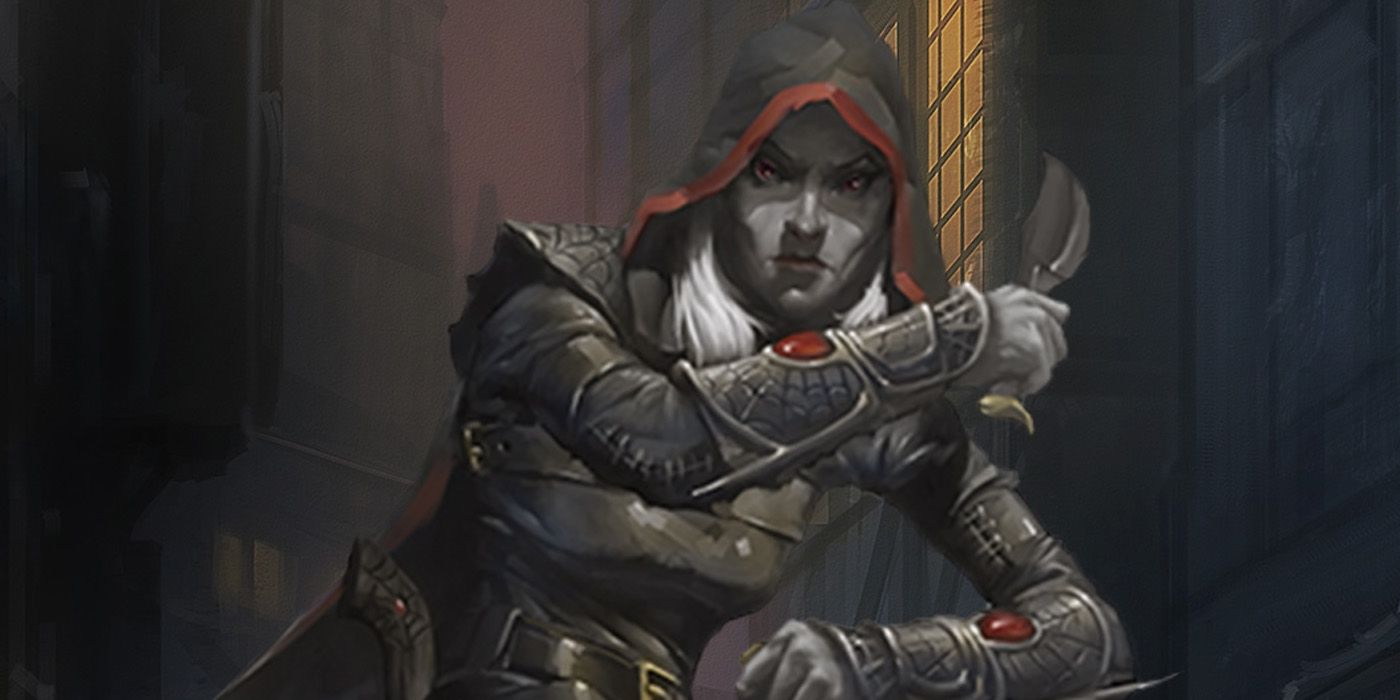
As opposed to Strength, which is meant to represent brute force, Dexterity is a measure of balance, physical precision, and agility. Low-Dexterity characters are clumsy and have a hard time moving quietly; on the other hand, high-Dexterity characters can pull off incredible feats of stealth or acrobatics. Monks, Fighters, Rangers, and Rogues all rely on Dexterity as their primary ability.
Racial Bonuses
- Elves: All subraces get +2.
- Halflings: All subraces gain +2.
- Gnomes: The Deep Gnome subrace gets +1.
Skill Checks
- Acrobatics skill checks involve feats of gymnastics or flexibility. Nimble characters will have an easier time leaping through treetops or balancing on a narrow bridge.
- Stealth governs sneaking and skulking in the shadows. Characters with high Dexterity are better at going unnoticed; a main reason that Dexterity is a Rogue's primary stat.
- Sleight of Hand involves close-up trickery and misdirection. High-Dexterity characters will have an easier time picking pockets and cheating at cards — another reason this stat is essential for Rogues.
RELATED: The Best Ways To Play Dungeons & Dragons Online
Combat Mechanics
In terms of combat scenarios, Dexterity's primary use is determining the player's armor class, or AC. By default, a character's AC is 10 + their Dexterity modifier. Thus, higher-Dexterity characters will be harder to hit — although of course, the type of armor worn affects AC as well.
This stat also determines initiative, which corresponds to one's Dexterity modifier. Players must add (or subtract) this number from their Intiative roll to determine where they fall in the order. Higher Dex means quicker reflexes, and thus a greater chance of attacking first.
Weapons
Finally, Dexterity determines a character's attack bonus with ranged weapons. When making an attack or damage roll with a bow, crossbow, etc., players must add their Dex modifier to the roll. A higher score in this stat means better hand-eye coordination and accuracy, leading to a better chance of hitting one's target and a more damaging strike. Ranged weapons include:
- Bows
- Crossbows
- Blowguns
- Slingshots
- Thrown weapons
Dexterity can also be used with finesse weapons, which allow players to choose between Strength and Dex for their rolls. Finesse weapons include:
- Daggers
- Rapiers
- Scimitars
- Shortswords
- Whips
Intelligence
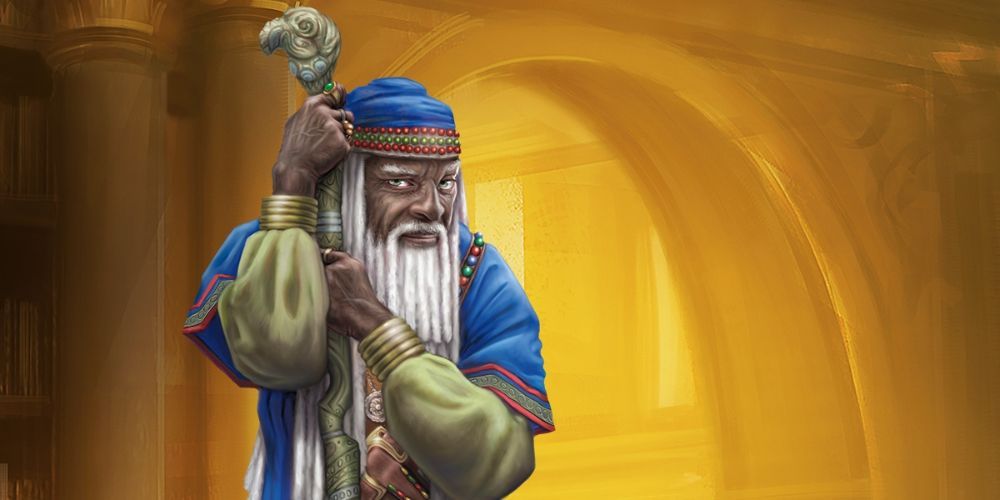
Often confused with Wisdom, Intelligence measures a character's book learning. Does a player character have a university education, or a dedication to a certain field of study? If so, they likely have high Intelligence.
Racial Bonuses
- Gnomes: All subraces get +2.
- Tieflings: All get +1.
- Elves: The High Elf subrace gains +1.
Magic
As Intelligence is the key trait of scholars, the classes which earn their magical knowledge through years of study use it as their spellcasting ability:
- Artificer: This is a class of magical inventors and innovators; as such, they need a strong grasp of both the theory and practical applications of magic and mechanics.
- Wizard: A classic casting class in RPGs everywhere, the Wizard gains their knowledge from years upon years of poring over ancient tomes.
Skill Checks
Most Intelligence-governed skills are subjects that can be learned by reading up on them; topics that a character might study. High-Intelligence characters know a lot of facts and are good at retaining information, and these skill checks allow them to utilize that information. A DM may decide to give a player advantage if a specific check involves a character's area of academic focus.
- Arcana governs knowledge of magic and mysticism, from specific spells to schools of magic.
- History is fairly self-explanatory, and can range from the political to the natural history of an area.
- Investigation involves searching for items or clues. Such checks may involve looting an area, searching for exits, or other situations that call for attention to detail.
- Nature covers one's knowledge of flora and fauna, and may tell a player if it's safe to eat a mushroom or if dangerous animals might lurk in a cave.
- Religion involves knowledge of the gods, their worship, and their worshippers.
Strength
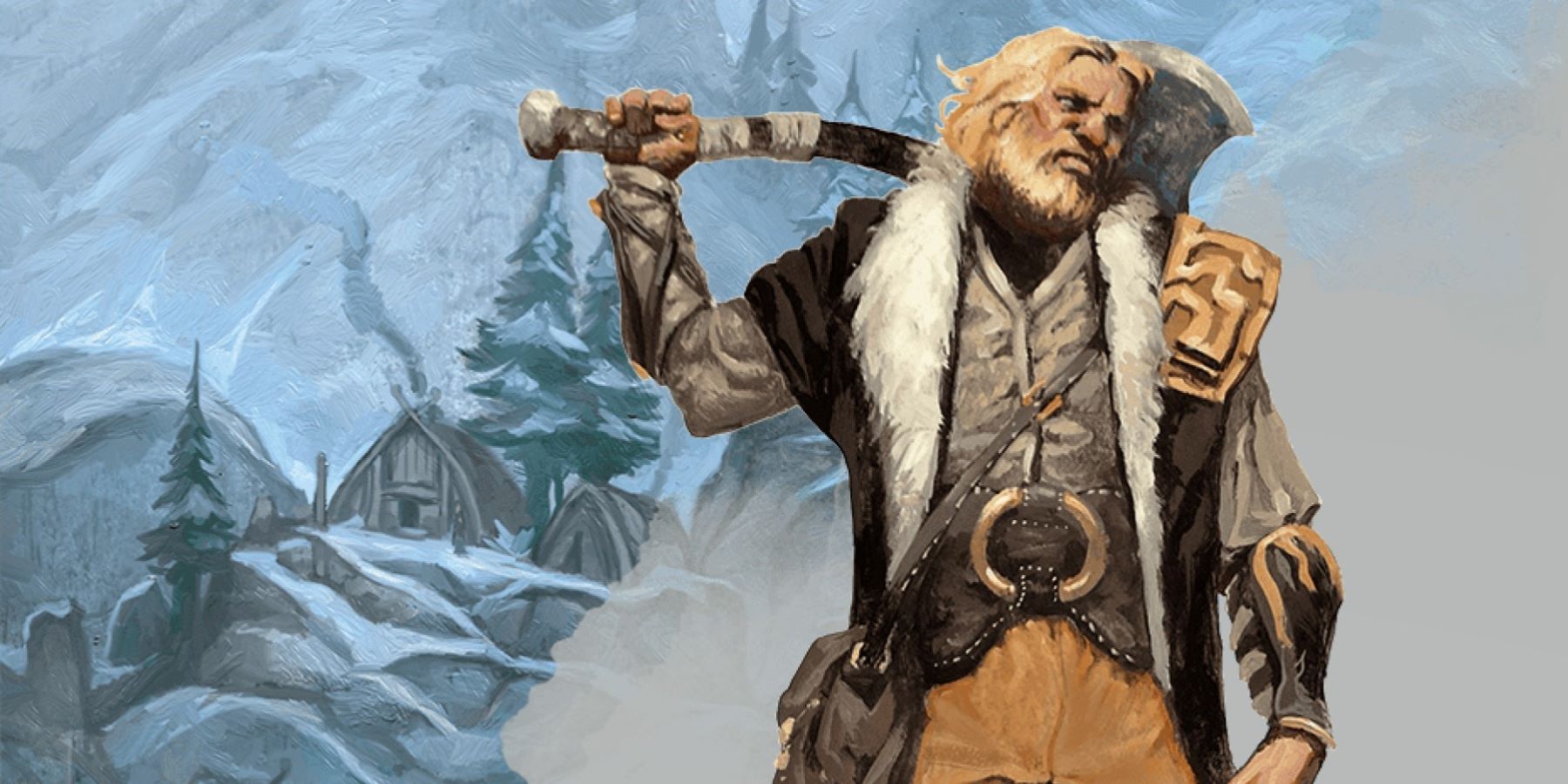
Perhaps the most straightforward stat, Strength is a simple measure of a character's physical prowess. It determines how much a character can bench press, how hard they can swing their battleaxe, or how many teeth they can knock out with a punch. Barbarians, Fighters, and Paladins all rely on Strength as a primary ability.
Racial Bonuses
- Dragonborn: All get +2.
- Dwarves: The Mountain Dwarf subrace gains +2.
- Half-Orcs: All gain +2.
Skill Checks
Unlike most ability scores, the Strength modifier only applies to a single skill check:
- Athletics governs feats of physical ability. Characters with high Strength are better at scaling walls, breaking down doors, lifting heavy objects, and throwing chairs in tavern brawls.
Since Strength's narrow opportunity for skill checks can be limiting, some DM's may decide that other skill checks can fall under Strength, depending on the circumstances. For example, a character may use their physical prowess to pass an Intimidation check; another may use brute force to wrangle a wild boar into submission as an Animal Handling check. Players are always free to make their case, as D&D rules often function more as guidelines than law. Remember, though, the DM has final say on house rules.
RELATED: Pro Tips To Create A Cyberpunk D&D Campaign
Weapons
Like Dexterity, a character's Strength modifier is used to determine their accuracy with certain weapons — this time, melee weapons. When making an attack or damage roll with any of the following, players must add their Strength modifier:
- Clubs
- Maces
- Swords
- Axes
- Hammers
- Many, many more
As mentioned above, Finesse weapons allow players to choose whether to use their Strength or Dexterity modifier on their attack and damage rolls. See above for a list of these weapons.
Wisdom
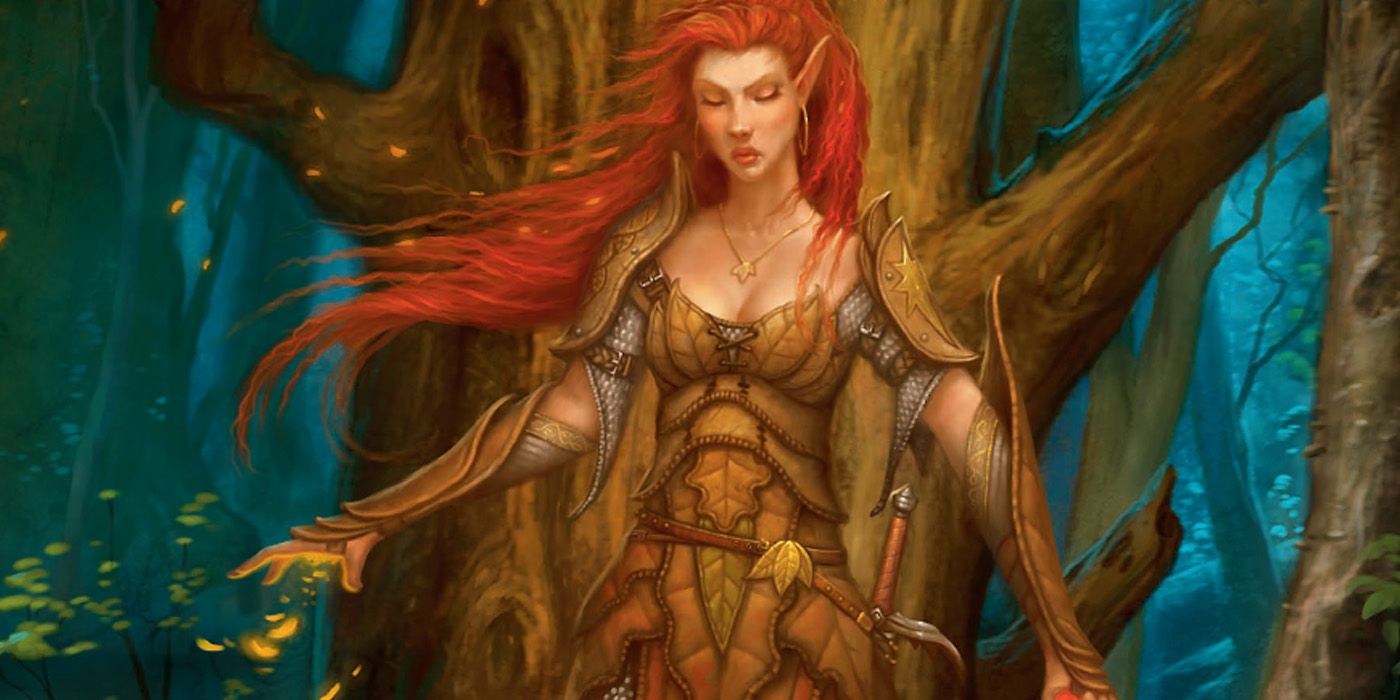
Intelligence and Wisdom both deal with knowledge, but while Intelligence governs book smarts, Wisdom has more to do with intuition, life experience, and common sense. High-Wisdom characters may not know as many facts or formulas, but their street smarts get them through sticky situations. In addition to the casting classes below, Monks rely on Wisdom as a primary ability in their builds.
Racial Bonuses
- Dwarves: The Hill Dwarf subrace gains +1.
- Elves: The Wood Elf subrace gains +1.
Magic
Wisdom serves as the spellcasting ability for the following classes:
- Cleric: Relying on a higher power, Clerics gain their spells from the wisdom of their gods. A deity's understanding of the universe stretches beyond a mortal mind, but a Cleric can gain glimpses to unleash divine magic.
- Druid: The ancient power of the natural world transcends what can be written down in books. Druids gain this power through practice and experience rather than study, learning to understand and utilize the wisdom that the trees and animals have to offer.
- Ranger: Like Druids, Rangers are deeply in tune with nature and all the knowledge it has to offer. As such, they've picked up a bit of Druidic magic to aid their travels.
Skill Checks
- Animal Handling determines a character's ability to calm, tame, and befriend animals. High-Wisdom characters have a better understanding of an animal's disposition, and better intuition on how to gain their trust.
- Medicine checks involve healing, as well as determining the nature and severity of an injury or ailment.
- Insight checks are usually used to tell whether or not an NPC is lying, or to try and discern their motivations. High-Wisdom characters have better intuition surrounding these things.
- Perception is similar to Insight, but involves one's surroundings and environment as opposed to human interaction. A character with high Wisdom is more likely to notice something lurking in the shadows or a strange aura permeating the air.
- Survival covers one's ability to protect themselves from the elements. Avoiding frostbite, sunburn, heatstroke, or stepping into a pit of snakes all may fall under Survival.
MORE: Dungeons & Dragons: Homebrewed Playable Races You Should Try

